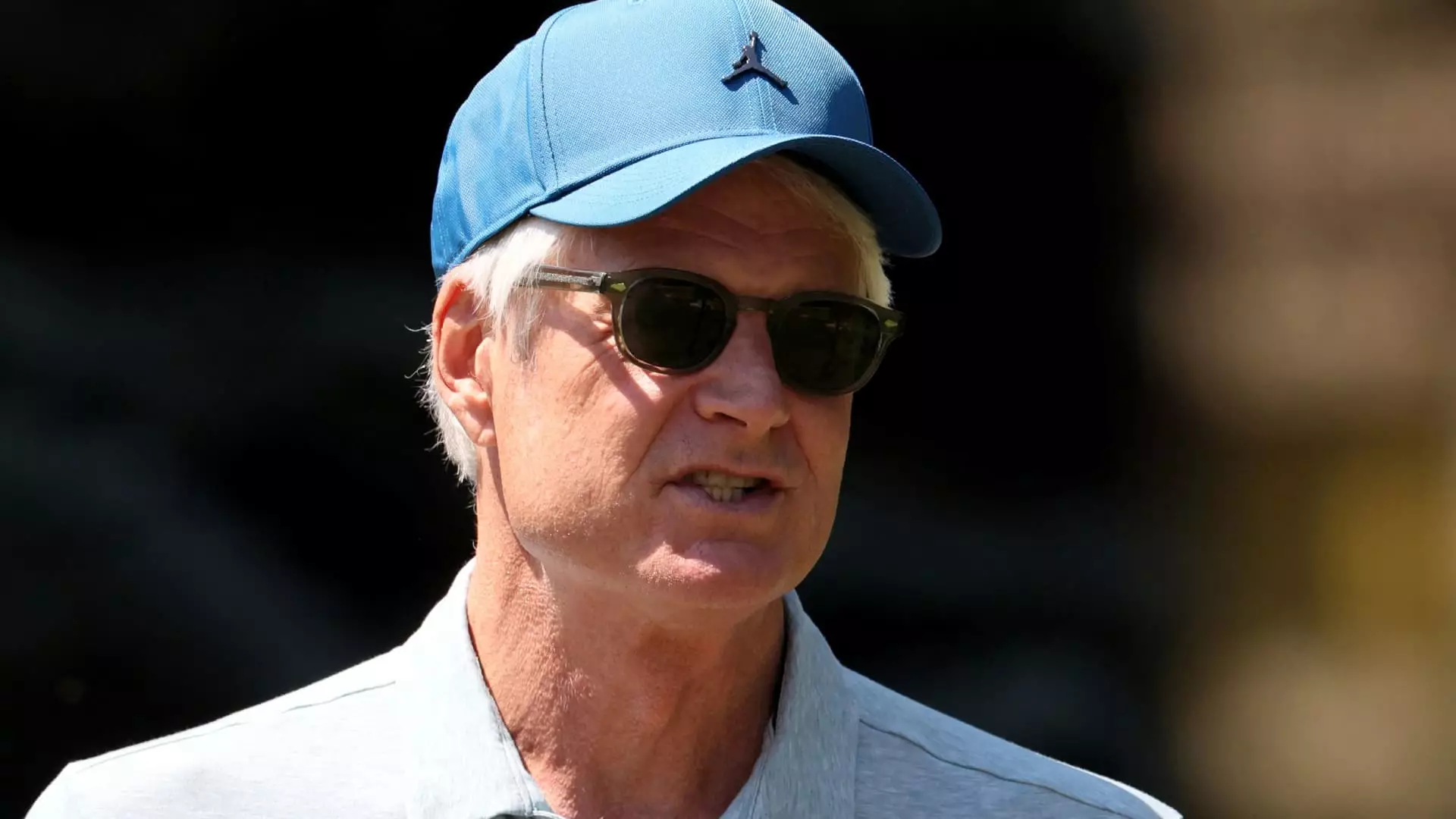In a significant move within the corporate realm of sportswear, Nike has revealed a leadership transition that could reshape its future. John Donahoe, who has been at the helm as CEO since January 2020, will step down and give way to Elliott Hill, a longtime Nike veteran returning from retirement. This shift comes at a critical juncture for the company as it grapples with declining sales and the complexities of evolving consumer preferences.
Donahoe’s departure, effective October 13, has caught the attention of analysts and investors alike. In the wake of the announcement, Nike’s stock experienced an 8% surge in after-hours trading, a glimmer of hope for a company that has seen its shares plummet by over 25% this year. This volatility underscores a pressing need for a revitalization strategy as the company navigates the aftermath of ongoing financial pressures.
Elliott Hill’s return is predicated on a wealth of experience gleaned from a career that spans over three decades within Nike. Having started as an intern in the 1980s, Hill’s journey to the upper echelons of the company speaks volumes about his familiarity with its culture and operations. Before his retirement in 2020, he was instrumental in overseeing Nike’s consumer and marketplace division, spearheading the brand’s marketing and commercial endeavors.
The board’s decision to appoint Hill reflects their recognition of his global expertise and his unwavering connection to Nike’s mission and values. Mark Parker, Nike’s executive chairman, highlighted the necessity for a leader who understands the brand’s identity and the needs of its stakeholders. As Hill takes the reins, there is hope that he will infuse the company with the innovative spirit that has defined Nike in its storied history.
During Donahoe’s tenure, Nike underwent significant strategic shifts, most notably moving towards a model prioritizing direct consumer sales. While this digital-first approach initially showed promise, critics argue that it may have detracted from the core of what made Nike a market leader—relentless innovation and cutting-edge product development.
The financial landscape has been unkind, with a forecasted sales decline of 10% for the current quarter attributed to soft demand, particularly in China, and erratic consumer behavior globally. This period of uncertainty culminated in Nike’s most challenging trading day in history, prompting speculation about the stability of Donahoe’s leadership. Although Nike co-founder Phil Knight expressed his support for Donahoe at the time, the pressing need for change has ultimately led to the current transition.
The impact of leadership transitions on company culture cannot be overstated, especially in a company like Nike, where employee morale is critical. Jessica Ramirez, a senior research analyst at Jane Hali & Associates, emphasizes the importance of Hill’s understanding of Nike’s culture during a time when employee sentiment may have waned. “He is up against a tough environment in terms of morale at the company, rebuilding some of that culture that the company has lost,” she remarked, highlighting the importance of leadership that resonates with employees on all levels.
Elliott Hill’s eagerness to reconnect with long-standing employees and foster new relationships is a promising sign of his commitment to enriching the workplace atmosphere. His recognition of the need for innovation, alongside a focus on cultural rebuilding, could set the stage for an invigorated Nike poised to reclaim its status at the forefront of the industry.
As Hill steps into his new role, he brings with him a vision for innovation that aims to reestablish Nike’s dominance in the marketplace. His return to the company signals a shift back to a focus on product excellence and consumer engagement. “Together with our talented teams, I look forward to delivering bold, innovative products that set us apart in the marketplace,” Hill stated, outlining his aspirations for Nike’s upcoming trajectory.
Looking ahead, the challenges are vast. Nike must reconcile its operational strategies with market realities, adapting not only to consumer preferences but also to a competitive landscape that has evolved significantly in recent years. As the company embarks on this new chapter under Elliott Hill’s leadership, stakeholders will be closely monitoring its progress and the potential resurgence of the brand that has long been synonymous with athletic excellence. The stakes are high, and the road to recovery will demand bold decisions and renewed vision as Nike aims to recapture the imagination of consumers worldwide.

